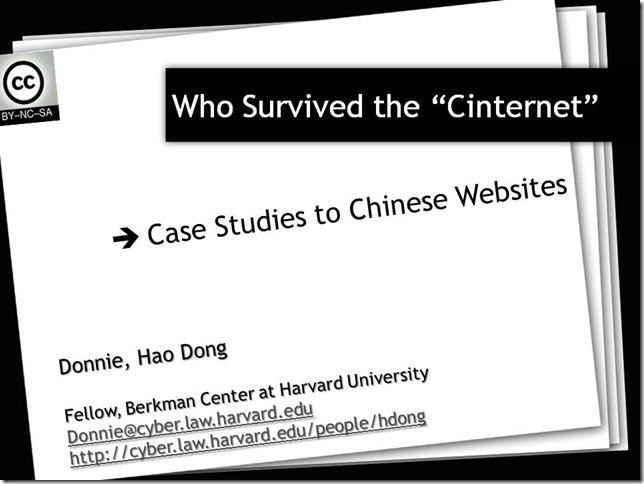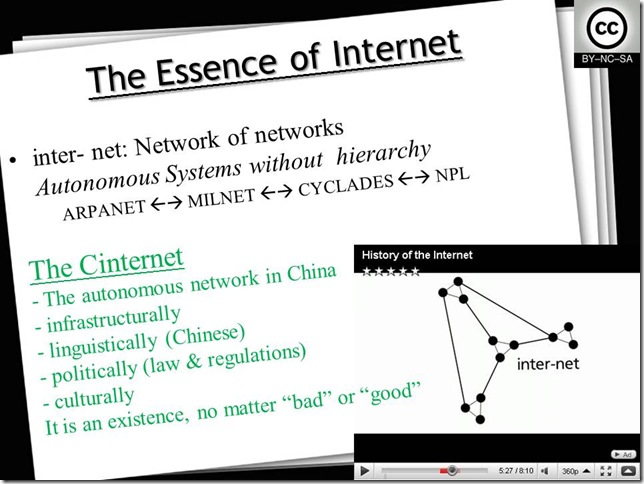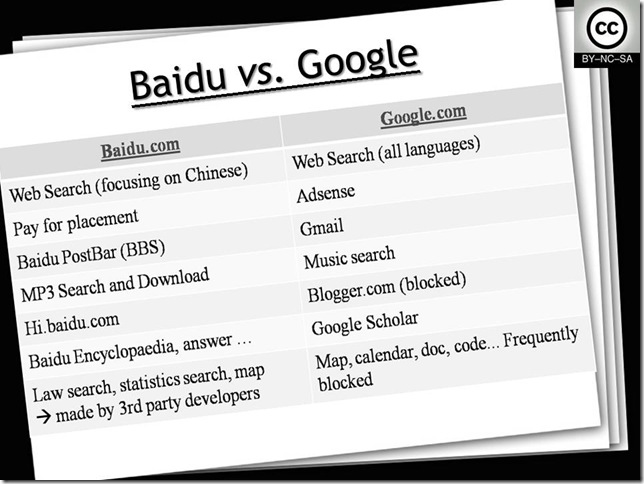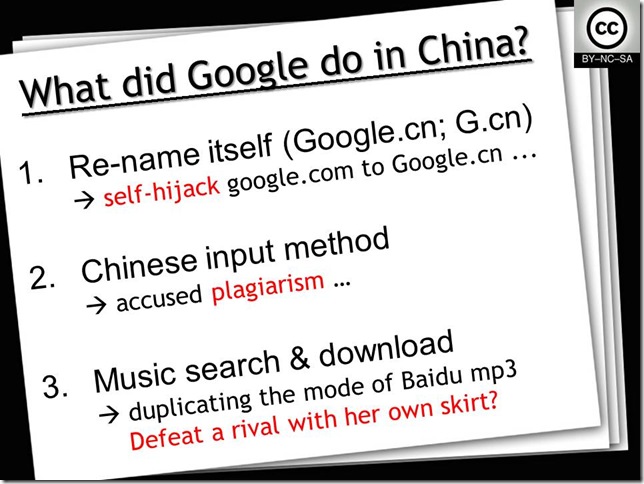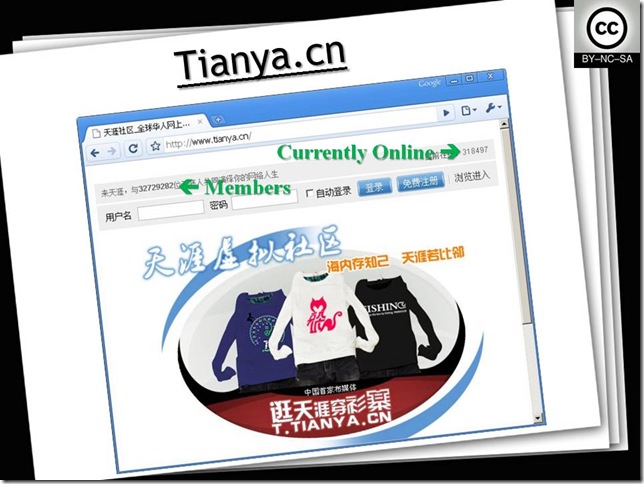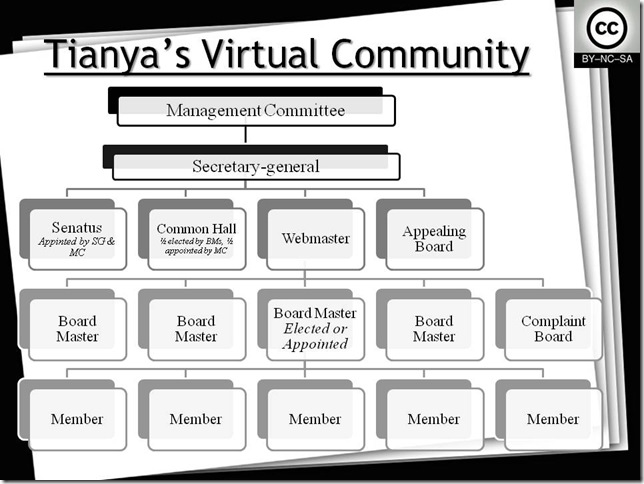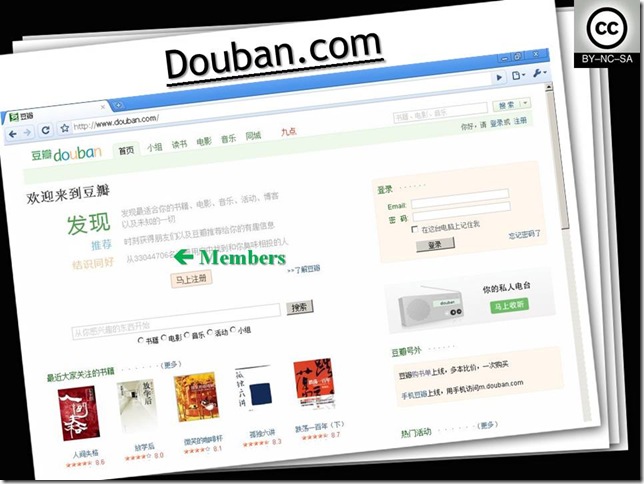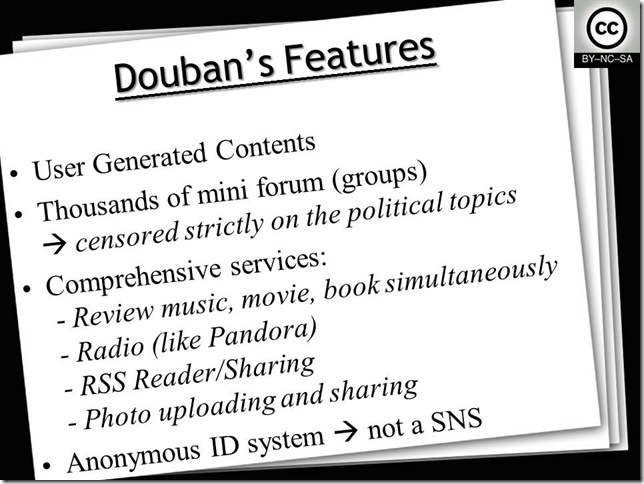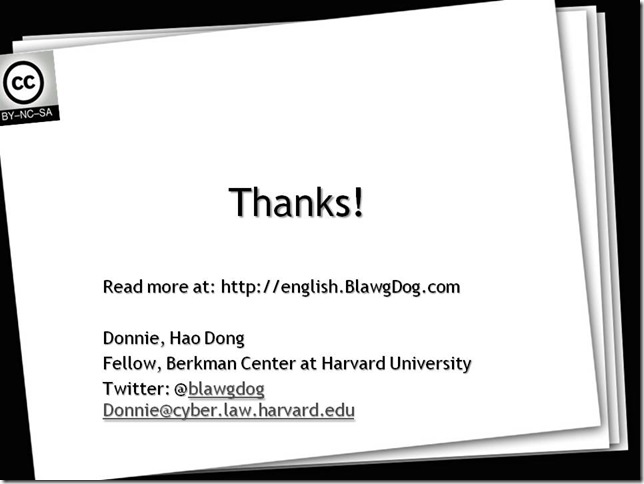English Abstracts of the Chinese Entries at BlawgDog (Dec. 21th – Jan. 24th)
This movie was made by a few Chinese WOW players. The story is well edited and all the episodes are captured from te WOW game. In this remix movie, the story of the dispute between two Chinese governmental departments on the licensing of the WOW and the the players’ rebellion of the electrotherapeutics to the “net-addiction” are narrated perfectly. The controversial electrotherapeutics was invented by a Chinese psychiatrist and supported by some parents. This is a representative work of Remix by grass-roots Chinese netizens. And it is released with CC-By-NC-SA. Watch it at here (I do wish someone may add English subtitles to it).
This post is contributed by Mr. Xuhui Chen, a new co-author of BLawgDog and a patent lawyer in China. The essay provides the passing rates of each year’s examination and other detailed analysis.
In this issue edited by Luckie Hong, the following news are included: (1) two guys are prosecuted for oporating unauthorized online-game sever of “Audition Dance Battle Online”; (2) A Beijing court ruled that funshion.com infringed copyright by providing downloading; (3) The Measures of payment of the textbooks’ royalties and the Measure of Protection of the Folklores are drafting; (4) Sany group, a major construction machinery producer wins a litigation on its trademark against the figure of “Benz”; (5) Tianjin high technology industry park promulgated a regulation encouraging the endevor of establishing well-known brands; (6) The series cases on the trademark “世界风SHIJIEFENG” was settled by the parties; (7) XGK, a company in Henan province, wins a lawsuit against State Intellectual Property Bureau for its decision of invalitation of the ZL8910393.8 patent; (8) powerdekor, a mojor producer of wood flooring in China, was involved in a patent law suit on its laminate flooring product; (9) Shanghai encourages the application of foreign patent with the maximum of 90,000 RMB financial aid.
This post is originally written in English. Click here.
This post is translated and extended in English, please click here for the English version.
This is a copy of the CNNIC’s notice requesting ISPs stopping to resolve the domain name which are not recorded in Ministry of Industry and Information Technology’s website registration/licensing system.
The Hong Kong government proposed a new version of the Proposals for Strengthening Copyright Protection in the Digital Environment. Xie Lin and Donnie co-authored this short post, which briefly introduced the content of the new proposals.
In this issue edited by Luckie Hong, the following news are included: (1) Google apologized openly for the first time in the copyright dispute between Google and Chinese authors; (2) A US software firm sues China for 2.2 billion dollars for using its copyrighted software in the Green Dam; (3) 50% increase of the copyright registration in China, 2009; (4) Hanwang, a Chinese company finally agree to sell the “iPhone” trademark to Apple; (5) Hengyuanxiang, a major Chinese woolen provider, was trapped in a trademark dispute on the “figure of a Sheep”; (6) the tademark of “Pierre Cardin” was finally selled to a Chinese company for 37 million euro; (7) A Fujian firm won IP lawsuit against FKK, a Japanese chemical giant; (8) A patent dispute about Mercury-free batteries falls into a vicious cycle; (9) RichtekTechnology, a Taiwan firm, sued AMD and other 5 US companies for patent infringement
In this issue edited by Luckie Hong, the following news are included: (1) Zhejiang Higher Court promulgated a guide for hearing the online copyright disputes; (2) A case on the popular book “Mawen’s War” was ruled in Nanjing; (3) The appealing case on the copyright of electronic navigation map in China (the first one in China) was ruled by Guangdong Higher Court; (4) the exposure draft of the new trademark law was submitted to the Legal Affairs Office of the State Council; (5) Google sent a lawyer’s letter to an individula who is raising an objection to the trademark of Google’s Chinese name Guge (谷歌); (6) Beijing No.1 Intermediate people’s Court affirmed the validity of Judger Group’s (a Zhejiang-based garment enterprise) trademark of GEORGE and its figures; (7) The “Interpretation of the Supreme People’s Court on Several Issues concerning the Application of Law in the Trial of Patent Infringement Dispute Cases” was promulgated by the Supreme People’s Court; (8) the new IMPLEMENTING REGULATIONS OF THE PATENT LAW OF THE PEOPLE’S REPUBLIC OF CHINA was passed by the State Council on 30 Dec. 2009; (9) Unilin loses its acts against patent infringing products of Yekalon in Germany.
This post firstly briefed Donnie’s definition of “Public Domain” in the context of Chinese copyright law in his PhD dissertation at China University of Political Science, then introduced the idea of “public domain day” on each January 1st for at this day, many works will fall into the public domain every year. Lastly, the post discussed some famous/interesting Chinese works that will be fall into the public domain since Jan. 1st, 2009.
In 2009, 170 entries are published at BLawgDog (including 38 English ones). Among them, Donnie contributed about 120 posts, other co-authors contributed about 40 ones. Then this article highlighted a few interesting posts during the year.
I annouced a very quick survey to Chinese twitter users: whether they are living abroad or inside of the GFW. 88.46% responed they stay in China. For the question “if you live inside of the GFW, are you use twitter frequently”, 70.21% said yes they are. For the question “if you live outside of the GFW, after going back to China, will you use twitter frequently”, 52.94% said yes, but 23.53% said he/she will use twitter only when she/he is out of GFW. For the question “Ask 5 of your QQ buddies randomly, how many of them are using twitter.” 53.85% of the respondent said none of their 5 QQ buddies is using twitter, and only 1.92% said all of the 5 QQ buddies are using twitter too.
Writen and edited by Luckie Hong, a co-author of BlawgDog, reporting the latest news in IP Law. This issue includes: (1) the promulgation of China’s new Tort Law, in which the ISP’s liability was eventually coded in a questionable way; (2) China association of literature copyright said Google has illegally scanned over 80,000 Chinese books; (3) Taiyuan intermediate peoples court in Shanxi Province issued a warrant of seizure to a karaoke bar for copyright infringement, which is the first time on mainland China; (4) the National Trademark Review and Adjudication Board petitioned to the Supreme Court for the Beijing Court’s rulling of its decision on the “Daohuaxiang” trademark; (5) the dispute of the trademark of *ST Sanlian (SH.600898) will be ruled soon; (6) JNJ (Johnson & Johnson) lost the case on the “Caile” trademark in China; (7) A Newyork listed Shenzhen company was sued for a patent infringement, the damages claimed by the plaintiff was 175 million RMB; (8) Aigo and Netac settled the patent dispute on USB flash drivers; (9) Up to 7 Dec. 2009, the annual number of patent granting is 3007,636.
This essay reviews the usage of the term “use” in China’s current Copyright Law, and find its definition is hightly confusional, which leads the uncertainty “individul use” in the list of limitations to the copyright in Art. 22 of the Copyright Law.
This post questioned the legitimacy of issuing a warrant of seizure to Karaoke bars for the reason of copyright infringement, which was happened in Taiyuan, the capital city of Shanxi Province.

